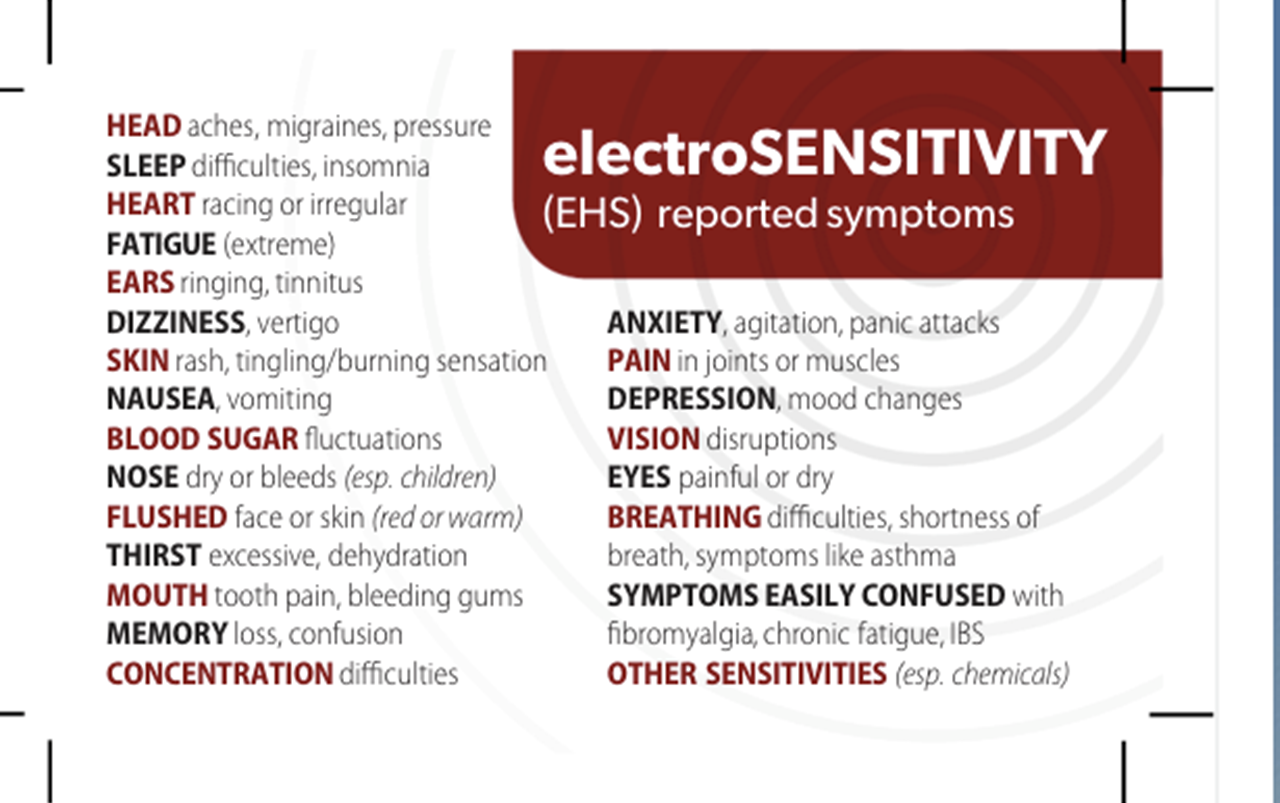Electromagnetic field sensitivity (EMF sensitive) is a condition in which an individual has a high sensitivity to the electromagnetic fields around him. The condition isn't limited to environments that do not have electrical current, but can affect people who have an open circuit or are in contact with electromagnetic field for prolonged periods of time. The Environmental Health Center in Dallas is well-versed in the causes of EMF sensitivity, and can assist patients in treating the symptoms. The center can perform tests to determine if the patient is susceptible to EMF exposure. This can be accomplished using new technology that measures heart rate variation.
The IEI-EMF sensitivities are a sign of emf exposure

Electromagnetic pollution and the generated electromagnetic fields have been linked to the development of a variety of illnesses. The symptoms are often difficult to identify and some individuals have reported a wide variety of symptoms. They could be the result of pre-existing conditions or a response to stress due to the possibility of exposure to high levels of electromagnetic fields. Whatever the reason, the symptoms can be debilitating for individuals who experience these. However the scientific community is yet to determine how widespread the IEI-EMF sensitivity syndrome is and how widespread it is.
It is not a symptom of electrohypersensitivity
While the symptoms of electrohypersensitivity and EMF sensitivity are similar, there are some key differences. Electromagnetic hypersensitivity is often misunderstood, and symptoms may vary. It is important to get a proper diagnosis to understand the root cause and potential treatments.
It isn't a symptom of EHS
Although EMF sensitiveness isn't an essential characteristic of EHS but it is commonly related to the disorder. In fact, some studies have suggested that the condition is related to genetics and environmental factors instead of a particular physical condition. However it is still necessary to conduct more research to make definitive conclusions.
It can be perplexing
The signs of EMF sensitivity can be perplexing. electromagnetic hypersensitivity syndrome aren't able to think their symptoms stem from an individual source. They seek medical treatment, but are unable to identify a cause for their condition. This raises suspicions that they may have some sort of mental disorder, and leads to an increased feeling of helplessness and anxiety.
It can be terrifying
The effects of electromagnetic fields, or EMFs can be a nightmare. People have reported unpleasant symptoms when exposed to these electromagnetic fields, which originate from devices such as Wi-Fi routers and mobile phones. The symptoms vary in severity, but in the most severe cases, people have to avoid electric devices and fluorescent lighting. In extreme instances, those suffering might even be forced to leave the modern world, living in isolated communities known in the industry as "EMF-free zone".
emf sensitivity symptoms is a good supplement to the production of melatonin.
A single of the important hormones that the body produces Melatonin is a hormone that is produced by the pineal gland. It is involved in numerous biological functions, such as the regulation of circadian rhythm. But its function as a protection factor from non-ionizing fields of electromagnetic radiation has been challenged mostly due to the inconsistencies between studies. Our understanding of this hormone's protection mechanisms is largely based on our understanding of the mechanism by which it works to protect your body from the oxidative stress induced by exposure to RF/ELF.
electromagnetic hypersensitivity symptoms may aid in changes in the autonomic nervous system.
A number of studies demonstrate that EMF sensitiveness can affect your autonomic nervous. Patients with the condition can have altered autonomic responses and experience digestive issues. Certain patients may have difficulty digesting food correctly or feel sick following a light portion. Others may experience changes in their body temperature , and have heat intolerance. These disorders are often due to other health issues including diabetes.
